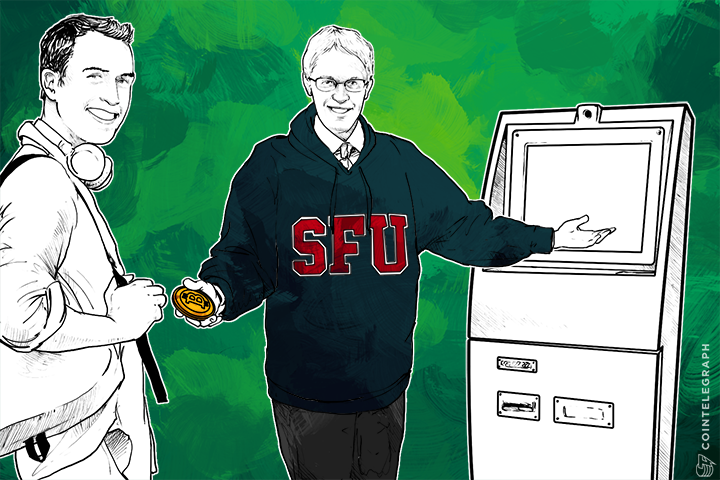A Canadian university will sell books for bitcoins and has installed BTMs to get students accustomed and more involved with financial technology services (FinTech).
Simon Fraser University (SFU) in British Columbia, Canada, has announced it is to install three BTMs across its campuses, alongside accepting bitcoin payments for purchases of books and university branded equipment in their bookshops.
By giving their students direct experience and knowledge of how the digital currency works, SFU could be helping these individuals include on their future CVs important know-how about modern FinTech. The growing importance of having experience with FinTech and digital currencies can be seen in the rise of job listings seeking talent in this field.

Back in May Cointelegraph reported on a job listing from J.P. Morgan seeking a Product Developer with “an opinion on Bitcoin” to work on new technological solutions for the investment firm.
Speaking in October 2014 about the employment prospects of graduates from SFU, President and Vice-Chancellor Andrew Petter has drawn attention to the university's efforts to produce graduates that ready to enter the current job market, explaining:
“Today’s employers are also looking for graduates who can adapt and respond to labor market trends, and who possess the critical thinking and communication skills taught in universities. At Simon Fraser University, we equip students with the knowledge, skills and experiences that will help them fulfill their potential in whatever field they choose.”

The Canadian university is not alone in the promotion of FinTech at the university level, however. Across the Atlantic in the UK, the government has highlighted the importance of increasing students' exposure and knowledge of the subject, stating that “the UK should build academic and technology leadership in the FinTech sector,” as part of the UK£10 million (US$15.4 million) the government pledged to digital currency research earlier this year.
Back in Canada, Mark McLaughlin, SFU’s Executive Director of ancillary services, also had the following perspective to offer about why the university wanted to bring digital currencies onto campus. He said:
“It is our mission to challenge and engage students and provide them with learning opportunities not only inside the classroom but also outside. […] SFU has one of North Americas’s most prominent Bitcoin student clubs and they have asked us to help introduce Bitcoin to the SFU community. As a university focused on innovation, we want to provide our students the opportunity to try digital currencies like Bitcoin."
The SFU Bitcoin Club was founded in 2013, and the Founder and President of the club, Michael Yeung, told Cointelegraph about how SFU became so involved in the digital currency world:
“[Mark McLaughlin] views Bitcoin as an innovative subject that can inspire students to look at the world in a new perspective. His administrative team along with the Bitcoin Club have worked together for over a year to bring Bitcoin to students at our university.”
When asked how he sees digital currencies impacting the job market, he replied:
“I'll expect to use my knowledge in FinTech to provide additional value to new and existing projects. Looking at how the Blockchain concept is trickling into various sectors, I believe many people will be exposed to the technology that makes Bitcoin work. This is why it would be helpful for students to study Bitcoin and related FinTech innovations; such knowledge and experience may be attractive to employers once school is finished.”

Cointelegraph has previously covered SFU when it became the first university in the world to accept BTC donations in late 2014. The institution immediately received US$6,000 through this channel, which was directed to support the development field-work of two students assisting vulnerable and trafficked women in Eastern India and promoting Bitcoin to the underbanked.
As universities focus on those all-important “graduate employment and destinations” figures for their students, it seems likely that more will start to try and tap into the FinTech boom. By including classroom knowledge and hands-on experience of digital currencies, the universities can make their graduates much more attractive to an increasingly important sector.


